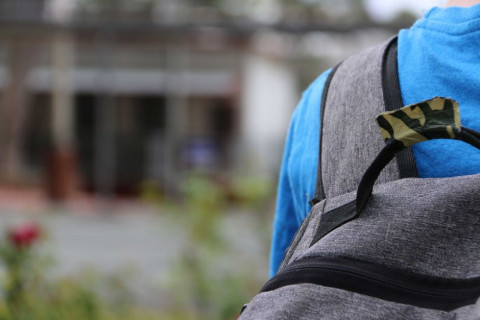
A parent of children with disabilities and experience in the education system has told the disability royal commission students are being denied access to normal school facilities inside and outside the classroom.
Key points:
- Witness AAC says one of her children was hit with his own hat by a teacher
- Witness AAC says another of her children was told he was stupid after asking for instructions to repeated
- She says she has seen children "dragged" down stairs and subjected to other restrictive practices
Related Story: Violence is everywhere in our lives, but it has been hidden — until now
On the second day of the royal commission, the woman, known as Witness AAC, said she witnessed it with her five children, aged between 15 and 28, who face diverse levels of challenges including autism spectrum disorder, ADHD, and anxiety.
Witness AAC said her daughter who has sensory problems became "quite embarrassed" when the teacher would "belittle her" for needing to go to the toilet, and that the family had "a lot of trouble negotiating" with the school to allow her to go.
She said a teacher pulled one of her son's hats off his head and hit him with it because she was not happy that he stood at the back of a line, away from his peers, as a way to deal with his sensory issues.
Witness AAC said her other son, who has challenges with fine motor skills, was not allowed to use a laptop and a teacher ripped pages from his maths book and threw them in his face because it was a "big mess".
Another case, she said, was when a teacher asked another one of her sons whether he was stupid after he asked her to repeat instructions when he had problems concentrating.
"I've actually been told by teachers, 'We can't make special allowances for your child,'" Witness AAC said.
"Sometimes I've had to really bring out the big guns and talk about the DDA [Disability Discrimination Act] and stuff like that.
"It could have been solved so simply but it turns out to be a big deal."
Witness AAC has also worked as a special education teacher since 2005 but has been on personal leave for about a year.
She said early in her career, she would "quite often" see non-verbal children signing to go to the toilet and would sit in their own urine after being told to wait.
"They were the non-verbal children who actually didn't have the capacity to go home and tell their parents what was happening," Witness AAC said.
Witness AAC said she saw unwarranted restrictive practices on students including a child being pulled along by her arms with her legs dragging behind.
"It was incredibly traumatising, incredibly confronting," she said.
She said while there had been a shift in the use of restrictive practices, and more people were aware of inclusive education, there was still a "long way to go".
"It was really difficult to actually get training [on inclusive education] so I used to fund my own and take sick leave and go to conferences," Witness AAC said.
"There's not enough funding and there's not enough focus on the co-teaching model.
"Most teachers come out of uni not knowing how to make adjustments … they're fearful because they don't want to do it wrong.
"I'm surprised to find that I work with people, including principals and administrators, who still think that children with disability should not be taught in an inclusive environment or actually understand what it looks like in reality.
"It's concerning that that's the situation because these are the people which have power to suspend and exclude."
Chair Ronald Sackville AO QC said focusing on education allowed consideration of the significance of the United Nations Convention on the Rights of Persons with Disabilities.
The Royal Commission into Violence, Abuse, Neglect and Exploitation of People with Disability is holding the four-day hearing in the north Queensland city of Townsville and a final report is expected to be delivered in 2022.
from https://www.abc.net.au/news/2019-11-05/disability-royal-commission-chil…